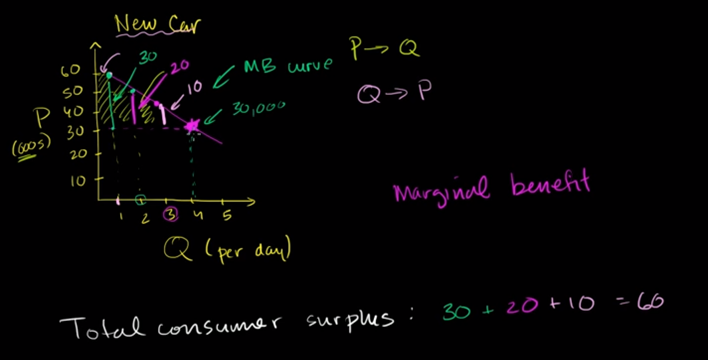Reading: Producer and Consumer Surplus
Consumer Surplus
Consumer surplus is an economic measure of consumer benefit, which is calculated by analyzing the difference between what consumers are willing and able to pay for a good or service relative to its market price, or what they actually do spend on the good or service. A consumer surplus occurs when the consumer is willing to pay more for a given product than the current market price.
Consumer surplus is based on the economic theory of marginal utility, which states the price an individual is willing to spend on a particular good or service reflects the amount of utility he receives from that good or service. The utility a good or service provides varies from individual to individual based on his own personal preference. Economic law holds that the more a consumer has of a good the less he is willing to spend for more due to the diminishing marginal utility he receives.

Producer surplus is an economic measure
of the difference between the amount a producer of a good receives and the
minimum amount the producer is willing to accept for the good. The difference,
or surplus amount, is the benefit the producer receives for selling the good in
the market. Producer surplus is generated by market prices in excess of the
lowest price producers would otherwise be willing to accept for their goods.
Producer surplus is shown graphically below as the
area above the producer's supply curve that it receives at the price point (P(i)),
forming a triangular area on the graph. The size of the producer surplus and
its triangular depiction on the graph increases as the market price for the
good increases, and decreases as the market price for the good decreases.

